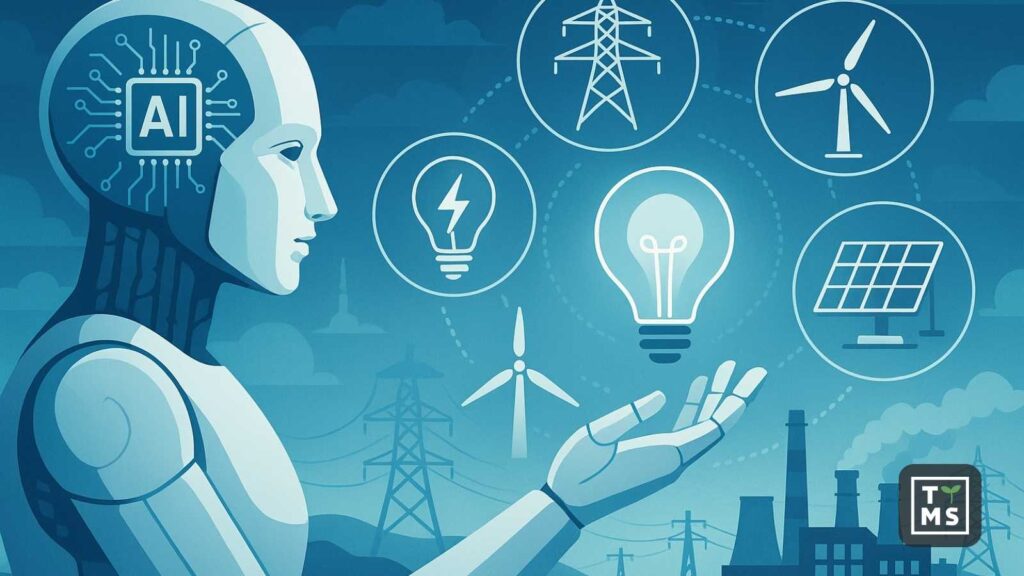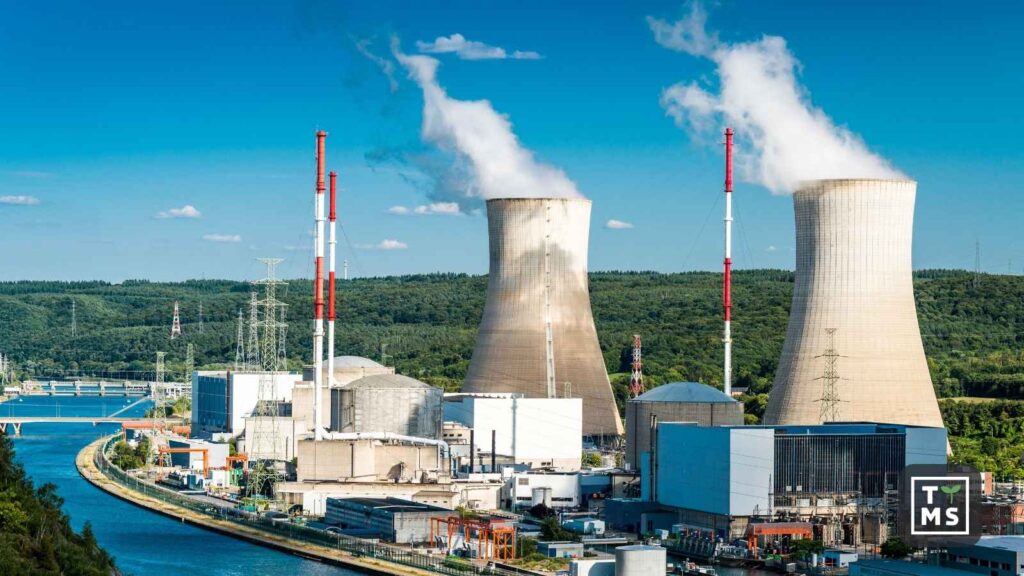AI is making its way into procurement teams at energy companies, transforming the way they work every day. It now helps predict future needs, negotiate better deals, choose the most trustworthy suppliers, and keep spending under control. In a world where commodity prices can shift overnight and competitors fight hard for every contract, every dollar saved counts. For energy companies, the takeaway is simple – to survive and grow, they need to treat AI as a trusted partner in building a competitive edge and protecting the future of their business.

1. What Is AI in Procurement – Definitions and Key Technologies
Artificial intelligence in procurement refers to intelligent systems that automate, analyze, and streamline purchasing tasks using advanced algorithms and data processing technologies. At the core of these systems is machine learning – algorithms that improve themselves by learning from historical data.
Natural language processing (NLP) automates tasks such as document analysis, contract review, and supplier communications. Advanced data analytics, combining statistical methods with AI, turns raw data into actionable insights for procurement teams. These systems continuously learn from completed transactions and adapt to changing business conditions.
Generative AI (GenAI) – technology that can create new content such as RFPs, contract summaries, or supplier messages – represents the latest step in the evolution of AI in procurement.
According to the EY Global CPO Survey 2025, as many as 80% of chief procurement officers plan to adopt generative AI in their procurement processes.
2. The Evolution of AI in the Energy Sector
The adoption of AI in procurement for the energy industry has come a long way – from simple task automation to advanced predictive analytics and real-time decision-making. Initially, the goal was to digitize manual processes. Today, AI-driven solutions combine deep learning with behavioral science to enhance sourcing, negotiations, and supplier relationship management.
The transformation of the energy sector – including the shift to renewables, deregulation of markets, and the explosive growth of available data – has significantly accelerated AI adoption. Artificial intelligence is no longer just support – it has become a strategic driver of change.
Recent analyses show that applying AI in renewable energy companies can improve operational efficiency by as much as 15–25%. Key areas include supply chain management and optimization of energy market transactions (McKinsey & Company, The Future of AI in Energy, 2024).

3. Key Benefits of Implementing AI in Procurement
- Increased operational efficiency – by automating repetitive tasks such as invoice matching or contract analysis, procurement teams can focus on more strategic activities.
- Better forecasting and demand management – data-driven predictions enable more accurate purchasing and inventory planning.
- Energy savings – AI helps optimize energy consumption across operational processes.
- Sustainability and ESG compliance – automated reporting ensures alignment with environmental and ethical goals.
- Applications of AI in Procurement – Examples
- Intelligent contract management
AI automates the entire contract lifecycle, extracts key clauses, flags inconsistencies, and suggests corrections in line with internal company policies. NLP tools compare new documents with approved templates, improving compliance and reducing the risk of errors. - Supplier evaluation and selection
AI systems analyze data in real time to assess suppliers in terms of performance, risk, and compliance with requirements. They also help generate RFPs and predict which partners are most likely to meet specific criteria. - Real-time data and faster decision-making
AI-driven analytics enable continuous monitoring of market changes, anomaly detection, and quick responses to emerging opportunities. - Automated communication and document creation
Generative AI drafts messages, RFPs, contract summaries, and other documents, relieving procurement teams of time-consuming administrative work. - Key Risks in Implementing AI – and How to Minimize Them
- Data quality and integrity
The biggest risk to successful AI adoption is the lack of reliable, consistent data. Issues such as fragmented formats, incomplete historical records, or missing standards can disrupt AI performance entirely. To address this, companies need strong data governance frameworks, ongoing quality monitoring, and training programs that help teams assess and improve data accuracy. - System integration and outdated technologies
Many organizations still rely on siloed, legacy systems that are difficult to connect. Lack of integration remains one of the main barriers. Solutions include gradual consolidation of procurement tools, using middleware or data lakes to unify data, and reducing technical debt step by step. - Infrastructure limitations and energy consumption
AI systems require stable and significant energy resources. When deploying them, companies should consider locating data centers near existing energy sources, diversifying energy contracts with renewables, and working closely with infrastructure operators to secure reliable power supply. - Regulatory and compliance complexity
As AI plays a bigger role in strategic procurement, regulatory oversight is tightening. To navigate this, organizations should collaborate actively with regulators, establish cross-functional compliance teams, and join industry working groups that shape realistic standards. - Cybersecurity risks
AI expands the potential attack surface. That’s why companies need to adopt a zero-trust approach, deploy advanced threat detection tools, and make cybersecurity risk assessments a mandatory part of every AI-related project. - Talent shortages and skills gap
The energy sector faces a major shortage of experts who combine knowledge of both AI and energy. According to the World Economic Forum’s 2025 report, this talent gap is slowing innovation and adoption of new technologies. Local infrastructure limitations and the lack of capable technology partners to support global rollouts at the local level also add to the challenge. - An additional barrier is cultural – a reluctance to take risks and a preference for incremental change. Many organizations still lean toward gradual improvements rather than bold transformations, which delays the full potential of AI in procurement.
4. How TTMS Sees the Future of AI in Energy Procurement
The energy sector is entering a new phase of digital transformation, where artificial intelligence not only streamlines operations but also begins to shape procurement strategies. From TTMS’s perspective, the coming years will bring a strong acceleration of AI adoption in this area – both among large energy groups and smaller operators.
“Energy companies that want to successfully implement AI in procurement should start by organizing their data – its structure, quality, and accessibility. The key is to build a unified information ecosystem that enables algorithms to learn from real processes. At TTMS, we support our clients in building these foundations – from ERP system integration to the deployment of cloud solutions that ensure scalability and security of procurement operations.”
— Marek Stefaniak, Sales Director for Energy Technologies, TTMS
- Automating procurement with generative AI
We predict that generative AI will soon become a standard tool for automating procurement documents – from RFPs and contracts to comparative analyses and supplier communications. This will radically reduce administrative workloads and shorten the entire procurement cycle. TTMS is already implementing solutions based on large language models, enabling operational teams to interact naturally with data – even without technical expertise.
- Advanced predictive analytics
AI models will increasingly support demand forecasting, risk assessment, and procurement planning based on market, weather, regulatory, and geopolitical data. Companies that invest in integrating these data streams into procurement processes will gain a major competitive advantage. TTMS already supports clients in building such integrated data environments, combining OT and IT systems and developing analytics platforms and predictive models tailored to the energy market.
- Edge AI and real-time decisions
Edge AI will play a growing role, particularly in dynamic areas such as energy trading, balancing, and supply chain management. Real-time procurement decisions will become a necessity rather than a competitive edge.
- AI as a driver of ESG strategy and procurement transparency
In response to regulatory demands and market pressure, companies will require tools that not only automate but also report on ESG compliance, carbon footprint, and supplier ethics. An example is the SILO system from Transition Technologies – software for power plants that optimizes combustion, reduces emissions, and generates critical environmental reporting data. Integrated with AI-powered procurement tools, such systems enable plants to meet ESG requirements while precisely planning fuel and reagent purchases, delivering measurable savings.
- A new cost landscape: an investment that pays off
At TTMS, we see artificial intelligence as a key enabler of procurement transformation – especially in sectors exposed to volatile market prices, geopolitical risks, and raw material availability. AI does more than automate processes and cut costs – it strengthens organizations’ ability to respond quickly to rapidly changing conditions.
With advanced analytics and predictive models, companies can forecast price trends, assess risks, and make informed procurement decisions before the market reacts. In our view, the ability to make intelligent, data-driven predictions – based on historical, real-time, and contextual data – will soon become one of the most critical factors for survival and growth in competitive energy, raw materials, and industrial markets.
The tangible benefits of AI in energy procurement include:
- Higher efficiency of procurement teams
- Reduction of errors and inefficient processes
- Better risk management across the supply chain
- Greater transparency and regulatory compliance

5. How TTMS Supports the Energy Sector in Smarter Procurement with AI – and Beyond
5.1 Conclusions: Where Are AI-Powered Energy Procurement Processes Heading?
Procurement in the energy sector is undergoing a profound transformation, with artificial intelligence as the driving force. AI is no longer just a supporting tool – today it is a central part of business strategy, enabling real cost savings, boosting operational efficiency, and strengthening resilience against market volatility.
At Transition Technologies MS, we have been supporting energy companies in their digital transformation for years. We deliver comprehensive IT solutions that integrate data from multiple sources, automate processes, and empower smarter decision-making. In procurement, we enable the deployment of AI-powered tools that forecast demand, predict energy prices, optimize purchasing strategies, and mitigate risks.
5.2 The Energy Sector of the Future with TTMS
Today’s energy industry faces major challenges: market instability, increasing regulatory demands, and both climate and digital transformation. The answer lies in intelligent, scalable, and integrated systems built on artificial intelligence and data.
TTMS helps energy companies build data-driven procurement strategies, automate operations, and implement AI tools that deliver real efficiency gains and competitive advantage. In addition, we provide:
- Advanced solutions that integrate data from multiple OT and IT sources
- Development of predictive systems and energy monitoring platforms
- Creation of secure, resilient IT environments
- Support with regulatory compliance and cybersecurity
Our experience spans partnerships with leading energy companies in Poland and across Europe. We know that success depends on combining technology with expertise and a deep understanding of business context.
Want to learn how we can support your company?
- Explore our energy sector services
- Discover our AI solutions for business
- Contact us via Contact Form
What are the main benefits of implementing AI in energy procurement?
Artificial intelligence in energy procurement boosts operational efficiency, reduces costs, and minimizes risks across the supply chain. It enables more accurate demand forecasting, automates time-consuming administrative tasks, accelerates decision-making, and ensures full compliance with industry regulations and ESG goals. As a result, companies gain both short-term savings and long-term resilience in an increasingly volatile energy market
Which AI technologies are most commonly used in energy procurement?
The most widely applied technologies include machine learning for advanced analysis and prediction, natural language processing (NLP) for contract review and supplier communications, and generative AI (GenAI) for automatically creating RFPs, contract summaries, and reports. Edge AI is also gaining momentum, enabling real-time decision-making in fast-changing market environments such as energy trading and supply chain management.
What are the biggest challenges in adopting AI for energy procurement?
The main barriers are poor data quality and lack of standardization, difficulties in system integration, high energy requirements of AI infrastructure, complex regulatory frameworks, and a shortage of specialists who combine expertise in both AI and energy. Overcoming these challenges requires strong data governance strategies, modernization of legacy technologies, and continuous upskilling of employees to build the necessary competencies.
How does AI support ESG strategies in the energy sector?
AI automates the collection and analysis of data on CO₂ emissions, energy efficiency, and supplier ethics. This allows companies to quickly report compliance with environmental regulations, track progress toward sustainability goals, and ensure transparency in supply chain management. By embedding ESG considerations into procurement processes, AI helps energy companies not only meet external requirements but also strengthen their reputation and stakeholder trust.